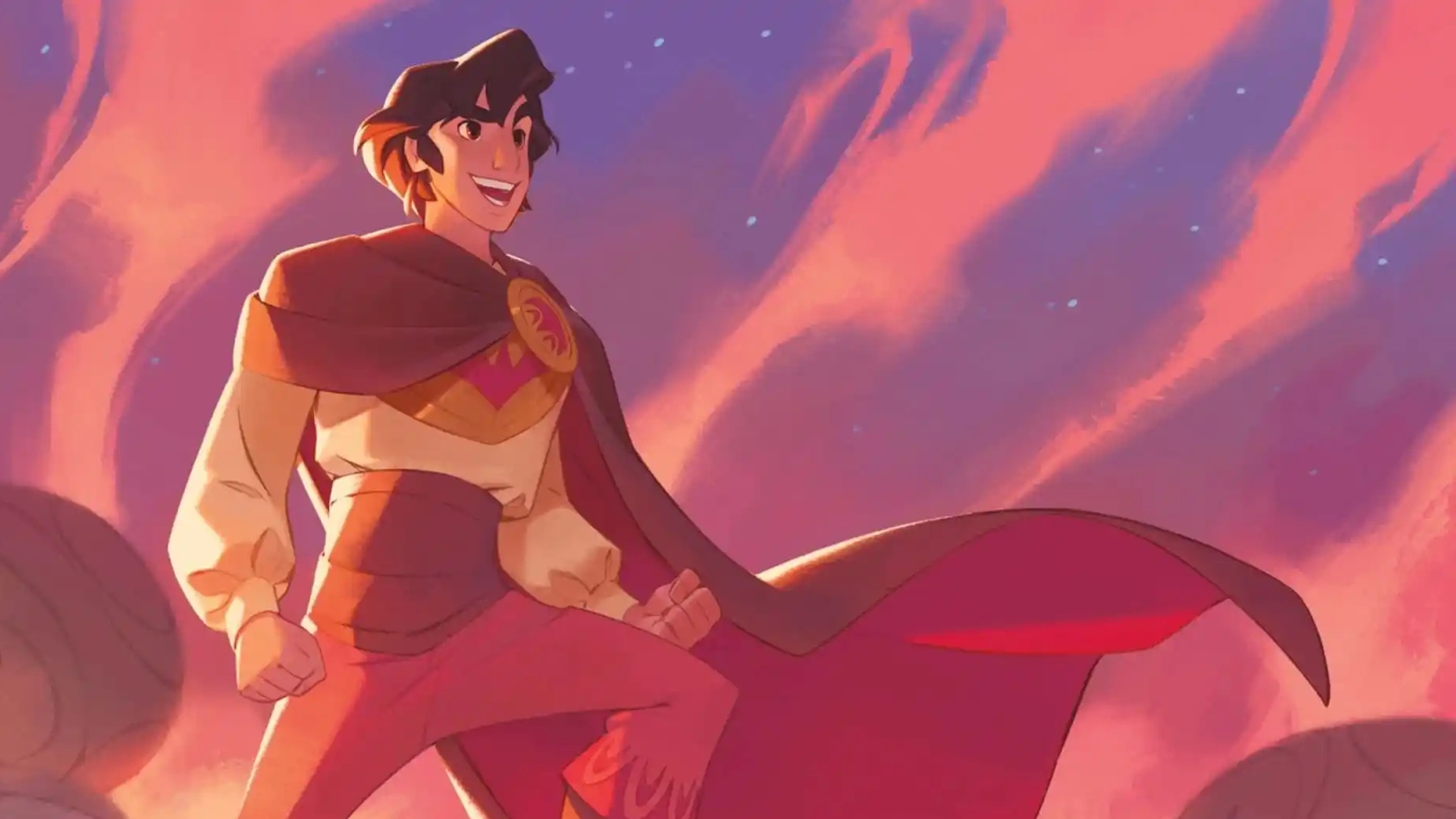Besieged Disney CCG maker brands suit against it 'the legal equivalent of alchemy' as it plays the hotshot lawyer card
Former Wizards of the Coast general counsel Brian Lewis slammed the lawsuit as "more of a PR stunt than a genuine legal dispute."

Ravensburger, the game company being sued over accusations of "stealing and copying" a game from rival Upper Deck in order to repackage it as Disney's much-hyped upcoming collectible card game Disney Lorcana, is bringing out the big guns.
On the one hand, Ravensburger has put forward a motion to the US District Court for the Southern District of California rubbishing Upper Deck's lawsuit outright, calling it "the legal equivalent of alchemy" and asking the court to dismiss the case out of hand.
On the other—you know, just in case that doesn't work—it's reminded everyone of just the kind of legal advice it has in its corner. In a statement to ComicBook.com that accompanied the court filing, Brian Lewis—former general counsel for Wizards of the Coast who helped turn Magic: The Gathering into a global phenomenon back in the '90s—said that Upper Deck's case "appears to be more of a PR stunt than a genuine legal dispute," adding that he hoped the case would be "dismissed outright" before anyone had to set foot in a courtroom.
If you don't quite remember, Upper Deck is accusing its former contract worker Ryan Miller of taking ideas from a game he worked on at the company over to his job at Ravensburger, porting them wholesale into Lorcana and letting that game hit the market first. Even more dramatically, Upper Deck says Ravensburger "aided and encouraged" him, in the hopes of profiting from the "stolen intellectual property". It wants financial compensation and—perhaps more scary for Ravensburger and Disney—an injunction on Lorcana's August release date.
You won't be surprised to learn that Ravensburger isn't quite on board with that description of events. In its motion for dismissal, the company gets downright excoriating about Upper Deck's motives, calling the case "a strained and clumsy effort to slow down a competitor".
"Upper Deck’s laundry-list of claims fails as a matter of law, even under the most basic level of scrutiny," reads Ravensburger's motion. "The fiduciary duty claim fails because Mr. Miller is not and never was a fiduciary to Upper Deck," meaning in essence that Miller was only ever an independent contractor who never agreed not to work with Upper Deck's competitors, so the company's "attempt to use this claim, and others, to manufacture a non-compete clause where none exists is the legal equivalent of alchemy," according to Ravensburger.
I could go on, but you get the idea. Ravensburger reckons all of Upper Deck's claims—fiduciary, fraud, and otherwise—fail to meet the standards necessary to merit consideration by the court. It's all just a business manoeuvre to hamper a rival, alleges the Lorcana maker. After all, "Upper Deck was aware of Mr. Miller’s employment with Ravensburger and work on Lorcana when the game was announced … despite that awareness, Upper Deck did nothing. Upper Deck cannot now lament that it was damaged by its own inaction".
The biggest gaming news, reviews and hardware deals
Keep up to date with the most important stories and the best deals, as picked by the PC Gamer team.
Blistering stuff! But Ravensburger would say that, wouldn't it? It's not exactly out of the ordinary for a company targeted by a court case to try to get the case dismissed before it can start doing financial and reputational damage. Just because Ravensburger's motion is so strident (and deploys such potent zingers) doesn't mean the court will let it have its own way.
Plus, I imagine Upper Deck will summon its own hotshot lawyers to answer Ravensburger's claims at some point. In a statement to PC Gamer, Upper Deck President Jason Masherah's said: "Ravensburger’s attempted dismissal fails to address Upper Deck’s merited lawsuit to protect Upper Deck’s intellectual property. This is a strategic deflection of our core allegations. We will continue to prosecute this case to enforce our rights and to ensure fair play within the gaming community." I suspect this is far from the last we've heard of this one.

One of Josh's first memories is of playing Quake 2 on the family computer when he was much too young to be doing that, and he's been irreparably game-brained ever since. His writing has been featured in Vice, Fanbyte, and the Financial Times. He'll play pretty much anything, and has written far too much on everything from visual novels to Assassin's Creed. His most profound loves are for CRPGs, immersive sims, and any game whose ambition outstrips its budget. He thinks you're all far too mean about Deus Ex: Invisible War.

